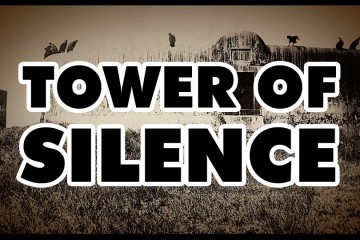A few weeks ago, I was given the opportunity to have a foreign exchange student stay as a roommate with me. I agreed to it as soon as I got the email offer, and now, I have a student from Japan staying with me for a month. I’ve been wanting to learn Japanese since I was in middle school, and I’ve studied on and off since then. Having my roommate here though has shown me a lot of importance to learning a language.
To start, I should say I’m currently trilingual, with English, American Sign Language, and Spanish, though Spanish is definitely my worst language, since I haven’t studied much or used it much since I learned it in middle and high school. That’s not to say I’ve completely lost it, but I only studied it for three and a half years, and very rarely find myself in a situation where I would need to speak Spanish. Back to the point though, Japanese has been one of the languages I’ve always wanted to learn. I’ve never really stuck with my studies though, since I never had a chance to practice or use the language in real life situations.
Now, with my roommate here, I see more chances for using Japanese. I’ve also discovered that my campus has a pretty decent amount of students from Japan. So, this has ignited my determination once more, and I am striving to learn more. So, if you’re interested in learning Japanese, or any language for that matter, I hope I can help you in your endeavors.
One of the most important things is finding a good study plan, or some good beginner course work. For this, I’d definitely recommend checking out Memrise. There’s many courses in many languages, but for the purpose of this article, I’ll stick to the Japanese courses. I relearned hiragana using “Introduction to Japanese”. Hiragana is the most essential writing systems (not really sure to call it an alphabet) to learn. Once you’ve studied up on your Hiragana, you can continue with that course, but I mainly recommend “Genki I”. Genki I is used in most, if not all, classes for teaching Japanese. It teaches you essential vocabulary, phrases, and more things like that. The great part about using memrise is that you have audio to accompany you and help you with pronunciation. If you plan to use Genki I on memrise, make sure you have a Japanese language keyboard setup. This is very simple to do, and all operating systems come with some form of this. There’s plenty of tutorials online for how to set this up, but here’s the one I used to set mine up.
After finishing Genki I, move on to Genki II. Once you’ve finished both of these courses, you should be able to do JLPT 4 or JLPT 3, depending on your skill level this far. If you’re ever struggling in understanding, translating, or speaking Japanese, you can always head over to Reddit for help. The two places I would recommend is /r/Japanese and /r/LearnJapanese. These subreddits have been immensely helpful for me, and the communities are very nice.
The only other important thing I can think of, is stay determined. You want to learn a language, and that takes a lot of time and hard work. Don’t let those things scare you though. Learning a language is incredibly helpful in life, and can even help you get a pay raise at work. Try to speak the language you’re learning any chance you get. Maybe you have friends who are learning, or you know someone who is a native speaker. Try to communicate as much as you can, and don’t be afraid of making mistakes. If you do, just say sorry or excuse me, ask for the correct word or phrase, and move on.
I hope this helps you at least a little. If y’all have any questions or wanna share your experience, feel free to share it in the comment section, I’d love to see what y’all have to say. Until next time, thank you guys for your time, and have a great day! さようなら!












